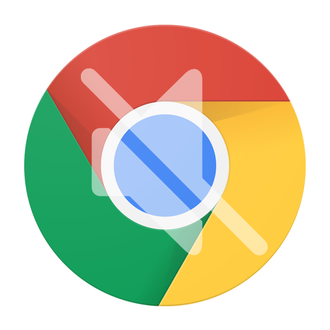
This winter, Google is rolling out a change to its browser, Chrome, that will make surfing the web a bit less bothersome: It won’t let videos automatically play with sound. It’s a great, convenient feature that every consumer wants … and that also poses serious questions about the company’s role influencing the web.
In January, Google will release version 64 of Chrome, and it will effect how the browser handles autoplaying video, of which there is, let’s say, a surplus these days. As the company announced yesterday:
Autoplay will be allowed when either the media won’t play sound, or the user has indicated an interest in the media. This will allow autoplay to occur when users want media to play, and respect users’ wishes when they don’t. These changes will also unify desktop and mobile web behavior, making web media development more predictable across platforms and browsers.
As websites have increasingly turned to video advertisements instead of more traditional banner ads — as you might guess, you can charge more for video ads — they’ve also been seeking ways to ensure those videos get seen. Sometimes this means creating your own video, in front of which pre-roll ads are played (hence the many sites “pivoting to video”). Sometimes this means putting the video ad next to an article, or within it as an interstitial — like a banner ad, but one that plays a video. Sometimes this means embedding your own video in another article, and automatically playing the pre-roll ad when the page is loaded.
On one hand, this makes it easier to jump right into a video, and the videos often play without sound until the user opts in (the best example of this is Facebook). But more and more frequently, autoplaying videos are appearing on websites with the sound automatically turned on. You’ve almost certainly experienced this: Loading a site, only to hear unwanted music blaring a few seconds later, and no clear way to turn it off, or down. One of the most annoying things about the current web is having to hunt for the tab autoplaying noise you didn’t ask for.
From the consumer point of view, killing this annoying trend is great. But from a larger perspective of the health of the web, the fact that it’s Google doing the killing is troubling. Chrome is the world’s biggest browser, and how it chooses to interpret the websites it loads — what it allows and what it doesn’t — carries the power to shape the web more to its liking. Earlier this year the company announced it was building an ad-blocker into Chrome and establishing a rubric for what formats are acceptable.
Again: These changes, in the short term, make the web a better place. Slow-loading, autoplaying, over-surveilling ads make the web a worse place. But the fact that Chrome is owned by one of two companies, along with Facebook, essentially creating a duopoly in web advertising, is troubling. It seems fairly simple to think that if Google wasn’t gobbling up so much revenue from smaller publishers, those sites might feel less pressure to fill their sites with user-hostile ads. And then we wouldn’t need Google to fight our battles for us at all.





























